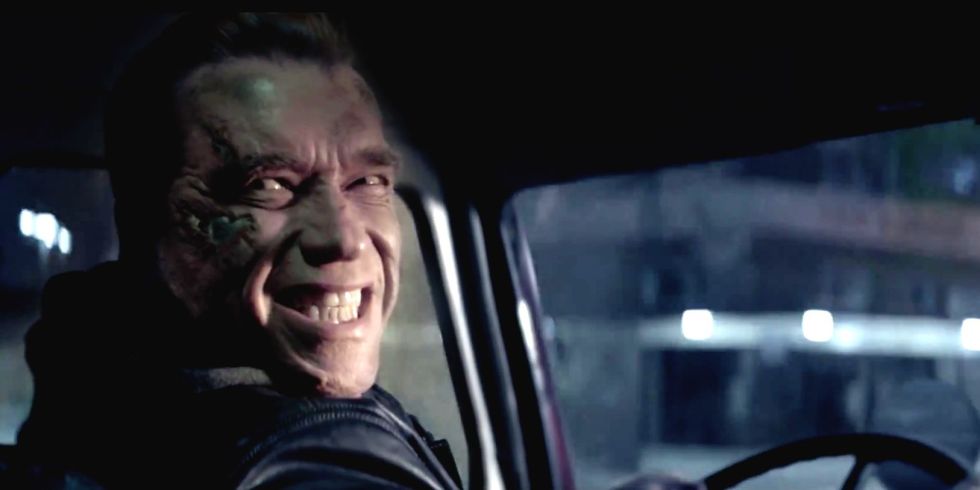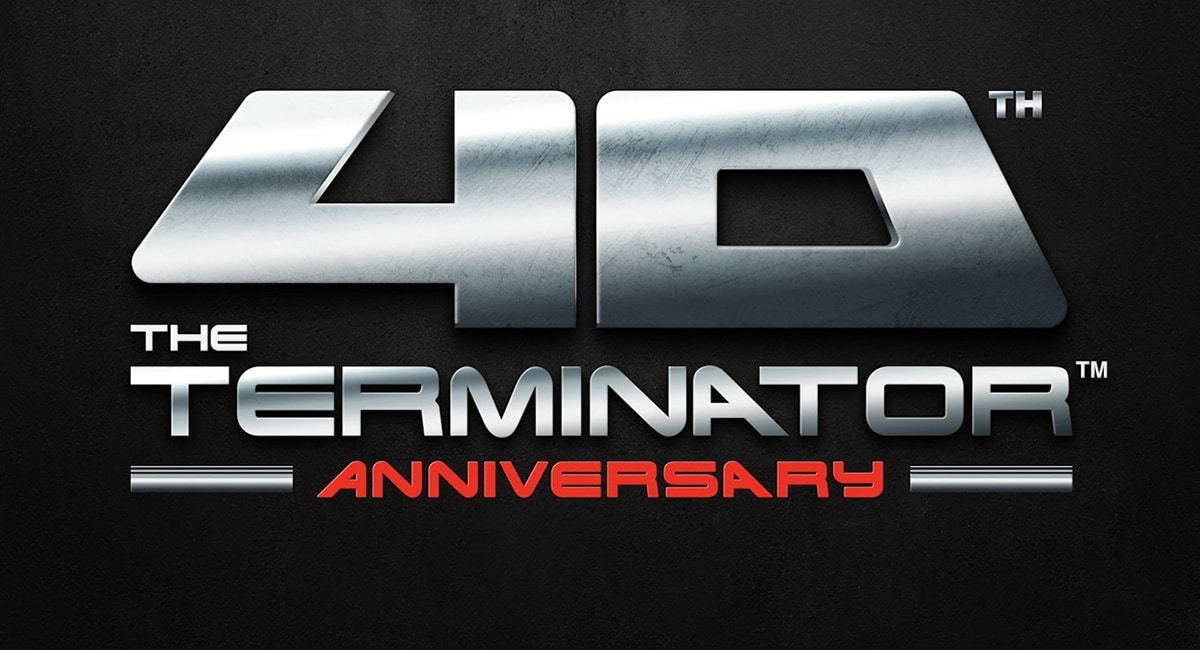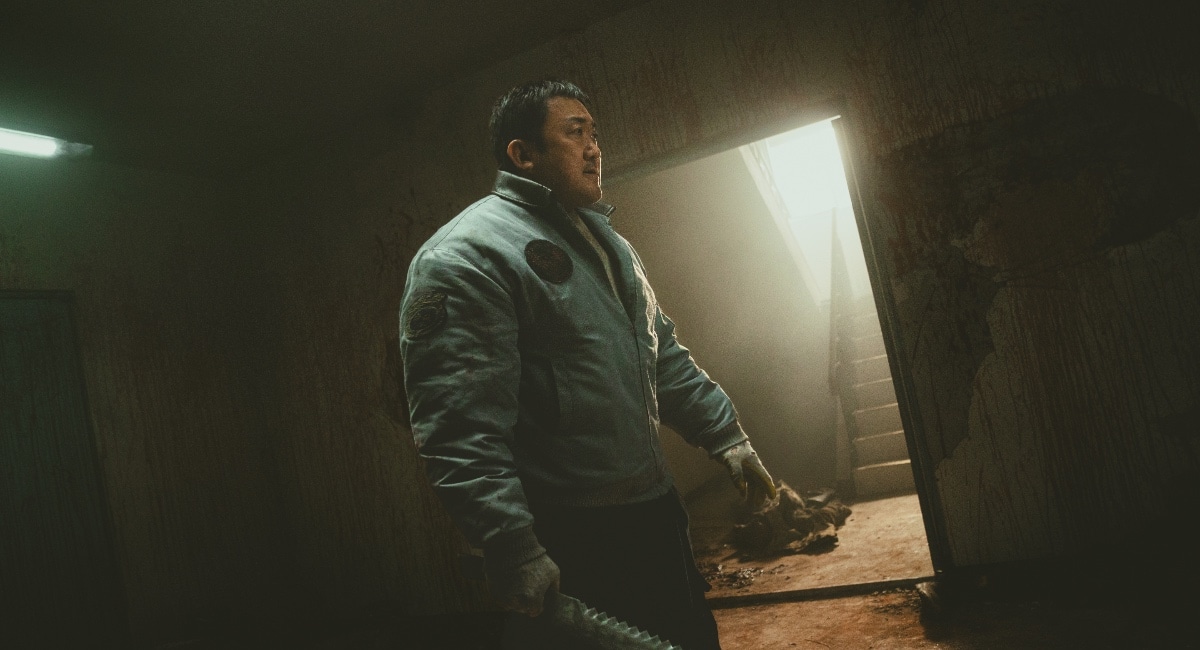In the waning moments of Terminator Genisys, Alan Taylor’s attempt to revitalize this moribund franchise, there is a scene where the T-800 (Arnold Schwarzenegger) and the titular heroes Sarah Connor and Kyle Reese (reimagined by the woefully miscast Emilia Clarke and Jai Courtney) are arrested by the local police. When their mugshots are taken, the theme from COPS plays in the background. This is the kind of movie you’ve signed up for when you go and see Terminator Genisys.
It wasn’t all bad going really, though my expectations were generally in the toilet from the outset. We’re talking about the follow-up to Terminator: Salvation or the reboot/relaunch of a franchise that’s been in a moribund state, unable to recapture the magic that imbued T2: Judgement Day with the ability to conquer the box office in the early 90’s. We’re also looking at a franchise relaunch that’s being helmed by the guy that brought you Thor: The Dark World, the next in a line of mediocre filmmakers that have inherited the reins on this series in the wake of James Cameron moving on to even bigger financial pastures. With those sunken hopes in place, I sat back and found that the first 20 minutes or so of Genisys to at least be watchable.
Within that opening frame, Taylor and company attempt to set the stage for why this film should exist in the first place, though it’s a fairly tenuous excuse: John Connor (Jason Clarke, no relation to the above), Reese, and the human resistance that’s in place during the fall of humanity, post-Judgement Day, discover Skynet’s time travel device. Due to Reese’s weird obsession with John’s mother, Sarah Connor, that Courtney completely fails to sell, John picks his right hand man as the person to send on a time traveling journey to protect Sarah and stop Judgement Day from occurring. Sounds pretty familiar, right? Short of an attack on John that occurs during the fireworks that send Reese back in time, you’re looking at a story that’s doing backflips to establish its own relevancy in the shadow of a much better set of films.
To their credit, Taylor and his art direction team do a pretty nice job of recreating the atmosphere of Cameron’s original (and best) Terminator film. At this point, I was filled with questions at the very least, sucker that I am for time travel narratives: Why is Sarah Connor no longer the innocent waitress that she was in the first film? Why is a Terminator now her paternal figure? Why did Matt Smith’s mysterious character attack John? Why is there a T-1000 hunting Sarah and Kyle in the timeline of the first film? It’s an enjoyably dumb time, though admittedly one that’s overloaded with exposition in order to remind viewers what’s happening and why it’s happening (seriously, poor Arnold plays the role of narrative dumping ground just as much as he does stoic father-figure). Yet, in order to avoid falling too far into the Back to the Future 2 retread trap, Kyle and Sarah take another trip in time.
That’s where things fall apart completely.
Taylor’s narrative, once it hits 2017 – the next timehop destination – gives way to weightless CGI battles, a non-starter plot regarding what’s basically an evil iPhone app, and twisty timeline logic that the script simply doesn’t have time to address, nor does it really seem to care to. All of this while establishing a poorly set up relationship between Kyle and Sarah that casts John as the ne’er-do-well suitor and the T-800 as the disapproving father. At this point, the whole endeavor becomes an incalculable mess, full of fan service that ends up making no sense in the context of the current narrative and showcasing action beats that can only be described as tremendously boring.
The structure of Terminator Genisys basically falls into “our heroes are chased by a bad guy, they hide out in a bunker of some sort and explain the plot to one another, arrested, bunker/hide-out, chased by a bad guy, arrested etc.” If I see Arnold throw someone through a wall again, it’ll be too soon. The only real bright spot in the final two-thirds of the movie is when J.K. Simmons pops up on screen as a detective who first encountered Reese and Connor in 1984 as a uniform police officer and has been obsessed with them ever since. It’s a character that’s actually somewhat compelling and has a unique perspective on the ongoing Skynet vs. Connors battle that we’ve seen warmed over so many times, it’s become tedious. As my friend who sat next to me at the screening said: I wish the whole movie had just focused on him.
What Terminator Genisys brought to bear for me is that this is a franchise, much like Jurassic Park, that is drug down by actually being a franchise. The original Terminator was a lean and mean showcase for a hungry young science fiction-minded filmmaker that told a wonderfully executed, done in one, finite tale. Even its first sequel, as enjoyable as it was, was really just an excuse to retell Terminator in 90’s clothes and take advantage of Arnold’s stature as a megastar. It’s been a case of diminishing returns ever since, and it’s possible that Terminator Genisys is the worst offering of the lot. That it exists to clearly perpetuate more sequels, with a post-credits scene that I bet even the writers don’t have an explanation for, may actually make it the worst of the lot. You can say a lot of things about Terminator 3: Rise of the Machines and Terminator: Salvation, but at least they had, respectively, a surprisingly downbeat ending and an attempt to tell a different kind story within this universe. Terminator Genisys does neither of these things; it’s just a much blander version of far better films.








